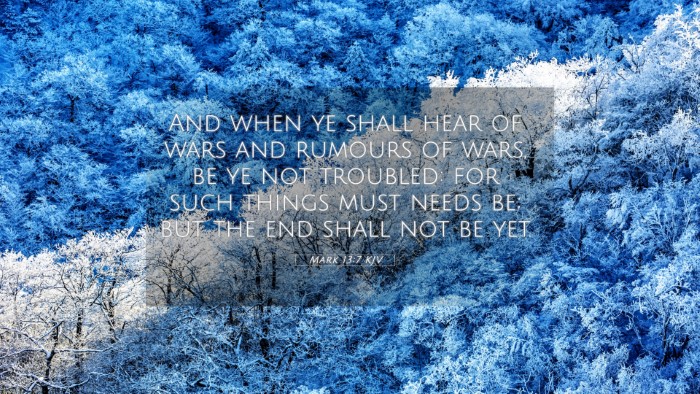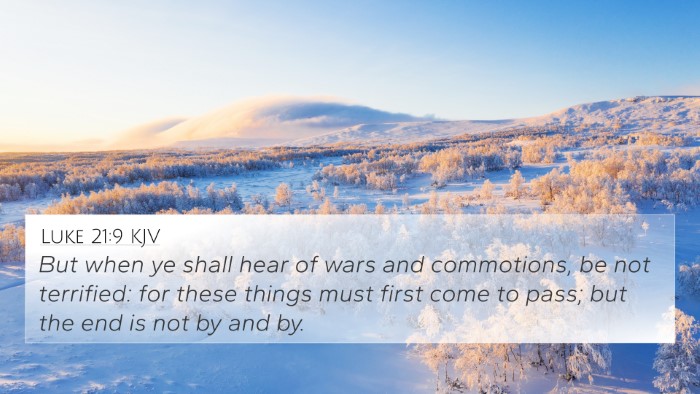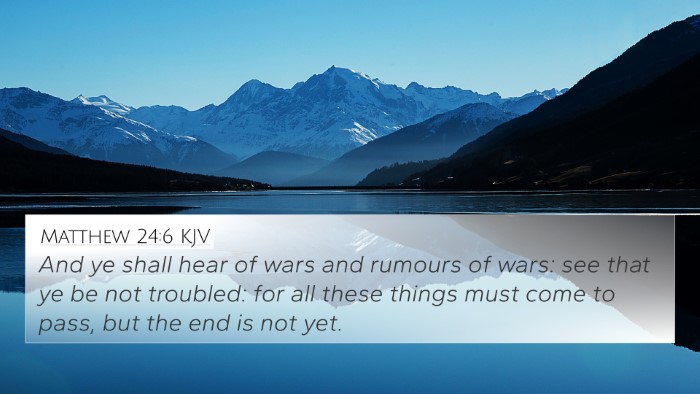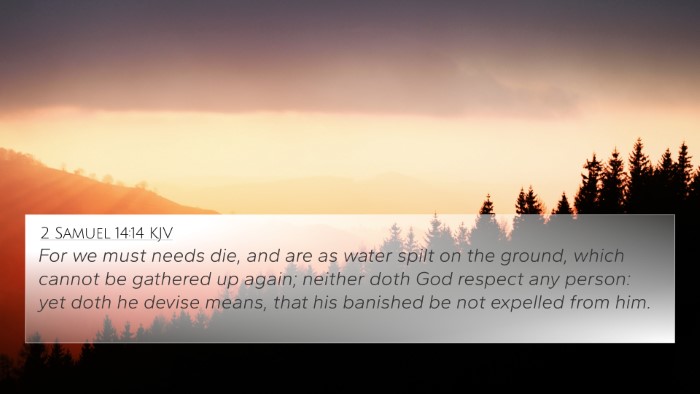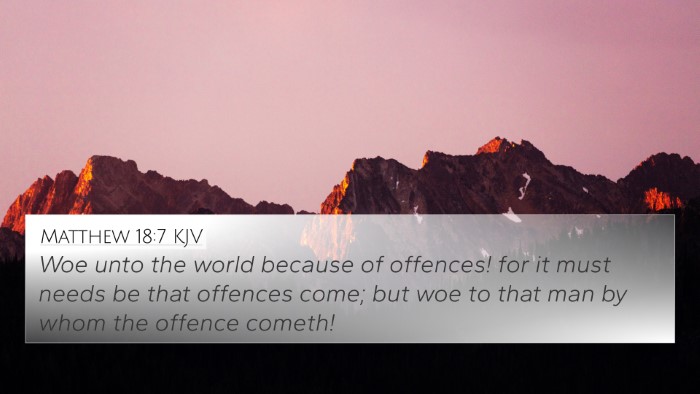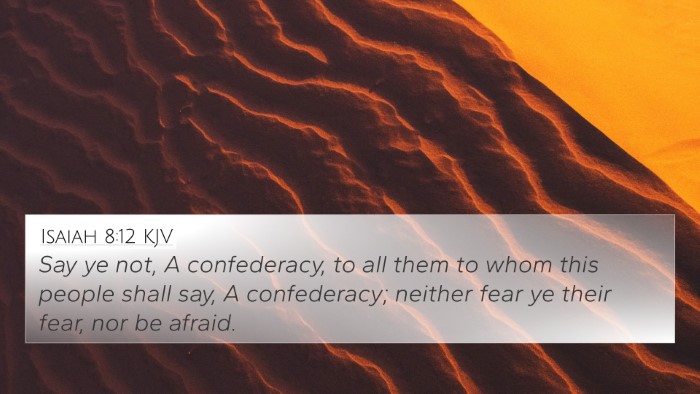Understanding Mark 13:7
Mark 13:7 states, "And when you hear of wars and rumors of wars, do not be alarmed. This must take place, but the end is not yet." This verse captures a significant message about the nature of conflict and the eventual coming of God's kingdom. Below is a comprehensive analysis incorporating insights from public domain commentaries.
Verse Meaning
In this verse, Jesus is talking to his disciples about the signs of the times, particularly concerning the end of the age. The phrase "wars and rumors of wars" reflects the turmoil and strife that will characterize the world as history unfolds.
Insights from Commentaries
- Matthew Henry: Henry notes that this warning is meant to fortify believers' faith, encouraging them to remain steadfast amidst chaos, as these events are part of the divine plan. He emphasizes that the occurrence of wars and conflicts is not an immediate indication of the end but rather part of a longer sequence leading to it.
- Albert Barnes: Barnes elaborates that the phrase emphasizes that such rumors should not create fear in the hearts of believers. They serve as reminders of the ultimate sovereignty of Christ and the assurance of His return. Barnes ties this assurance back to God's control over history and His ultimate plan for redemption and establishment of His Kingdom.
- Adam Clarke: Clarke explicates that the occurrence of unrest is a sign of moral and spiritual decline in society. He places the verse in the prophetic context, suggesting a likelihood of increased strife as humanity moves further away from God's statutes.
Cross-References
Mark 13:7 can be connected with the following Bible verses:
- Matthew 24:6-7: This parallel passage directly refers to similar topics about wars and natural disasters as signs of the times.
- Luke 21:9: Luke recounts Jesus' expectations of unrest and fear that will accompany the end times.
- James 4:1: This verse addresses the source of conflicts, linking human desires to the wars that take place among people.
- Revelation 6:4: This passage speaks of the black horse representing famine and conflict, echoing themes in Mark 13:7.
- 1 Thessalonians 5:3: This epistle touches on peace and safety amidst the impending troubles, paralleling the warnings given by Jesus.
- Matthew 10:34: Jesus mentions that He did not come to bring peace but a sword, emphasizing division as a consequence of His coming.
- Romans 8:31-39: Paul reassures believers, affirming that God's love prevails even amidst tribulation, linking emotional peace during challenging times.
Connections and Thematic Analysis
This verse serves as a cornerstone in understanding eschatological themes throughout Scripture. It connects not only the Gospels but also ties into the epistles and prophetic literature.
Thematic connections can be observed in the following ways:
- Divine Sovereignty: Just as God directs history (Acts 17:26), the ambiance of conflict does not dictate that His plans are thwarted.
- Call to Perseverance: Mark 13:7 urges believers to stay grounded in faith amidst turmoil, a notion echoed in 2 Timothy 4:7 regarding finishing the race.
- Hope and Assurance: The promise of Jesus’ eventual return encourages believers to remain hopeful (Titus 2:13), generating connections with future prophetic texts.
Conclusion
Mark 13:7 presents a vital perspective on the human experience of turmoil and the assuredness of hope through faith in God. Utilizing cross-references, we can delve deeper into the intricate connections within the Bible, reinforcing the relevance of this verse in both personal faith journeys and communal studies.
Tools for Deeper Study
For those interested in exploring more about cross-referencing in the Bible, various resources can enhance understanding:
- Bible Concordance: Useful for finding related verses and words.
- Bible Cross-Reference Guide: Provides layouts of related scriptures for study.
- Bible Reference Resources: Helps outline major themes across different books.
- Cross-Referencing Methods: Offers structured ways to connect different scriptures.

